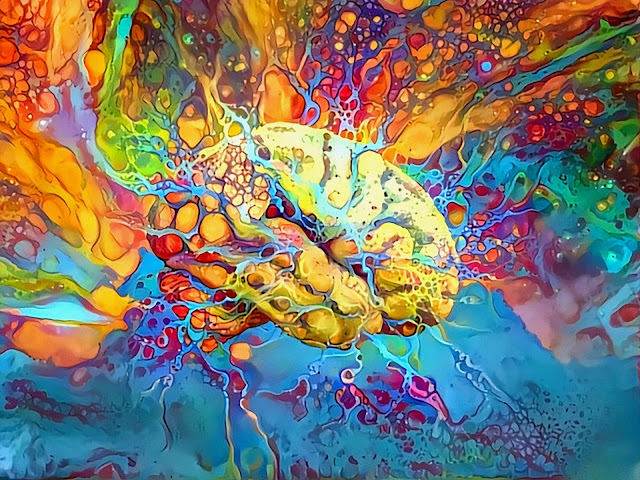psychedelics definition:
What is a psychedelic Drug? And psychedelics meaning:
Psychedelics are a class of hallucinogenic drugs whose primary effect is to trigger non-ordinary states of consciousness through the over-aggression of serotonin 2A receptors. Psychedelics with the greatest cultural and scientific influence are mescaline, LSD, psilocybin, and DMT. They cause specific psychological, visual, and auditory effects, as well as a substantial alteration of consciousness.
Since the last decade, discussions around psychedelics have grown rapidly, driven in part by research showing their safety and effectiveness in treating a variety of mental health conditions, from depression to anxiety to addiction. Molecules that produce psychedelic effects affect our mood and thinking dramatically. However, the exact mechanism by which they exert their effects on our brain is less clear. Researchers have noted several overarching themes, regardless of the mechanisms of each psychedelic. Here are five ways in which psychedelic molecules may affect our brains.
Ways Psychedelics May Affect the Brain
Neurotransmitters and their receptors are affected
Neurotransmitters, the chemical signaling molecules in the brain, are probably the most commonly cited effect of psychedelics. It is thought that many psychedelics work by affecting a site for the neurotransmitter serotonin known as the 2A receptor. The binding of psychedelics to the 2A receptor on neurons in the brain's cortex is believed to be a major contributor to their mind-altering effects.
Despite the importance of the serotonin 2A receptor, neurotransmitters play a more complex role. Other serotonin receptors may also be involved, and other neurotransmitters and their receptors (such as GABA, dopamine, norepinephrine, and glutamate) may also play a role.
Brain activation patterns changing
A popular way to study the biological effects of psychedelics is to measure changes in brain activation patterns. The default mode network (DMN) has been the focus of much research in this area. Mind-wandering and thinking about the past and future are associated with the activation of the DMN. The brain's "homeostasis network" has been shown to be altered by psychedelics repeatedly. According to some, this finding may be correlated with the reorganization of thoughts and increased insight associated with the use of psychedelics.
Psychedelic use has been linked to a number of other brain activation changes as well. One of the more prominent effects of these changes is alterations in the connectivity between the prefrontal cortex (a part of the brain involved in emotional regulation and higher-level thinking) and the amygdala (a part of the brain's temporal lobe involved in emotion).
Changing gene expression in the brain
Modern science has reframed how genes are expressed as one of its most important reframes. RNA and proteins are coded by genes. Our genes determine every aspect of who we are. Even though the DNA in our genes is relatively rigid, it has now been demonstrated that our environment, our choices, and even what we eat can affect our genetic expression. Preliminary evidence suggests that psychedelics may alter gene expression in the brain, which may help explain some of the benefits associated with them.
A number of decades of research have been conducted on the relationship between psychedelics and gene expression. In 2003, scientists showed a rapid change in gene expression after LSD was administered to rats. One study from 2020 found that a single dose of psilocybin altered 19 genes in the prefrontal cortex of the brain, particularly those related to the immune system. Later animal studies found similar effects on genes associated with neuroplasticity. Lastly, very recent (preprint) research suggests that DMT may affect thousands of genes. The overall effect of psychedelics on gene expression and the contribution of this pathway to their subjective effects remain unclear despite these data points.
Influencing the immune system of the brain
Helping the brain to rewire itself
Brains are always rewiring themselves in response to their environment, a process known as neuroplasticity. One way it does this is by changing the connections between neurons. Mental health problems, especially depression, have been linked to issues with neuroplasticity. Psychedelics may help reverse this deficit, according to new research.
A significant amount of evidence for the neuroplasticity effects of psychedelics is derived from ketamine. The research focuses primarily on animal studies, but ketamine is believed to help enhance neuronal connections. Further, more limited research suggests that other psychedelics such as MDMA (3,4-methylenedioxymethamphetamine), LSD (lysergic acid diethylamide), and psilocybin may also facilitate stronger connections between neurons.
Serotonin and its receptors are thought to play a major role in the psychedelic experience. The serotonin neurotransmitter is implicated in multiple aspects of the immune system, and there may be receptors for this neurotransmitter throughout the body and brain. There is a potential for widespread immune effects following psychedelic use. Cells and animals have also shown that psychedelics may have an anti-inflammatory effect. In addition, it has been proposed that psychedelics could affect the brain's immune cells directly.



Feel free to ask me any questions you might have